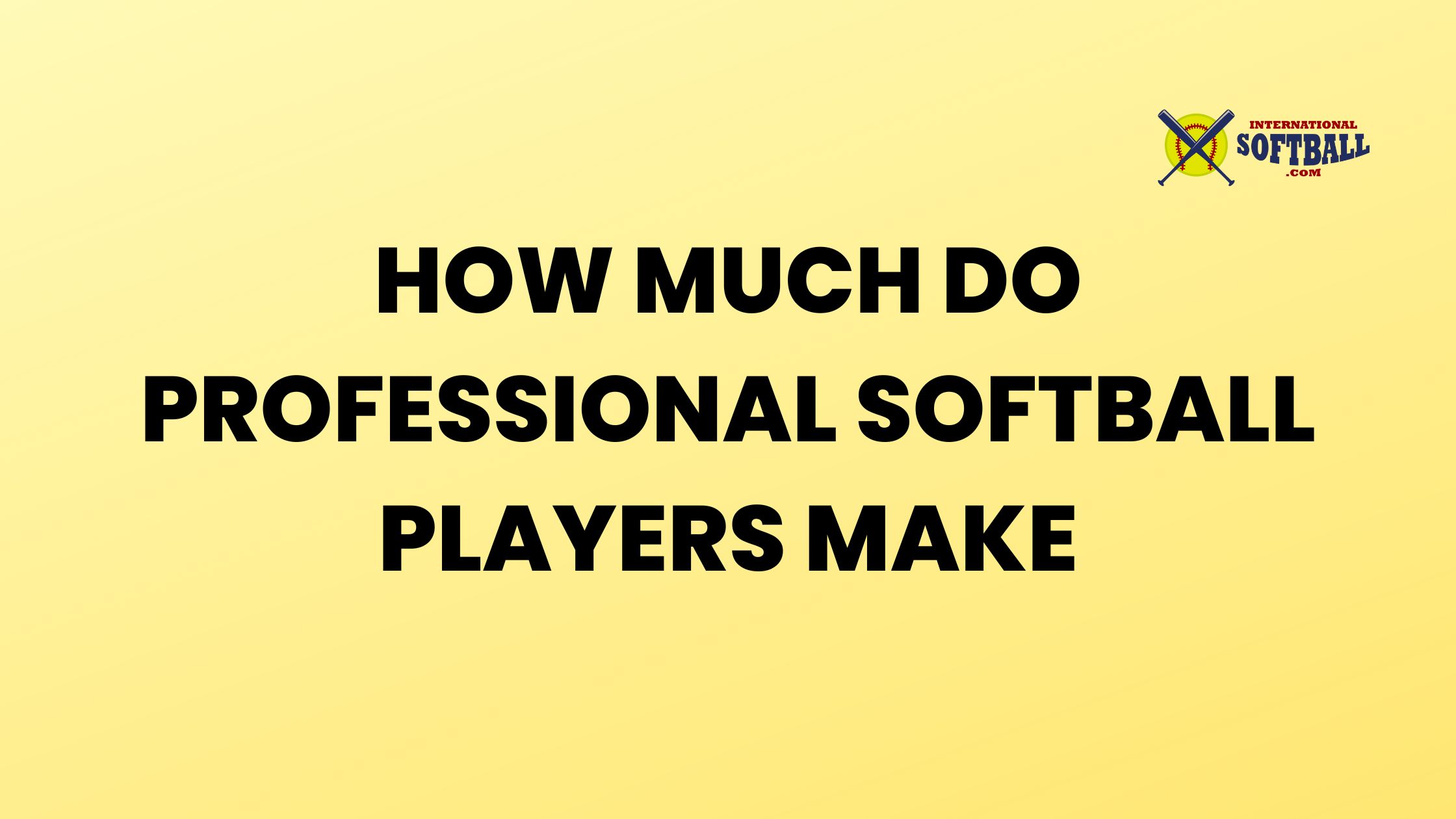Professional Softball Players’ Salaries
Many softball players go pro in order to make a career out of playing the sport that they love. But how much do professional softball players actually make? Let’s take a look at the salaries of some of the highest-paid softball players in the world.
Major League Softball (MLS)
The Major League Softball (MLS) is the highest level of professional softball in the United States of America. The MLS was founded in 1997 and currently consists of four teams. These teams are the Akron Racers, Chicago Bandits, Dallas Charge, and the Scrap Yard Dawgs. The MLS is a member of USA Softball, which is the National Governing Body (NGB) of softball in the United States.
The minimum salary for a player in the MLS is $20,000 and the maximum salary is $150,000. The average salary for a player in the MLS is $46,875.
National Pro Fastpitch (NPF)
The National Pro Fastpitch (NPF), previously known as the Women’s Pro Fastpitch (WPF), is a professional softball league in the United States. It consists of four teams. From 1997 to 2007, the league was headquartered in Nashville, Tennessee. The NPF office has been located in Chicago since 2008.
In 2009, the NPF had its inaugural season with six teams. The Salaries for NPF players range from $2000-$5000 per season.
How Much Do Professional Softball Players Make?
According to the National Association of Intercollegiate Athletics, the median salary for professional softball players is $31,500 per year. The pay range for professional softball players can vary greatly depending on experience and skill level. The top professional softball players in the world can make upwards of $1 million per year.
Per Game
In 2018, the minimum salary for a player in the National Pro Fastpitch (NPF) was $2,000 per month during the four-month regular season. The maximum salary was $5,000 per month. Players could earn additional money through performance bonuses, such as $50 for each home run hit during the regular season.
Per Year
In 2019, the average professional softball player made $5,000 per year. The lowest-paid players made $2,000 or less per year, while the highest-paid players made $10,000 or more per year.
Benefits and Bonuses
Endorsements
In addition to their salaries, many professional softball players earn money from endorsements. An endorsement is a formal agreement between a player and a company in which the player agrees to promote the company’s products or services. The company, in turn, pays the player an agreed-upon sum of money.
Top players can earn quite a bit of money from endorsements. For example, in 2012, Olympic gold medalist Jennie Finch signed a 3-year deal with Louisville Slugger worth $1 million. Other companies that have endorsed softball players include Nike, Rawlings, and Mizuno.
Endorsement deals usually involve more than just a financial transaction; they also involve the use of a player’s image. For example, Jennie Finch’s Louisville Slugger endorsement included not only payment but also the use of her image on Louisville Slugger products. In some cases, a player’s endorsement deal may also give them a say in the design of the products they are endorsing.
Signing Bonuses
Signing bonuses are becoming increasingly common as employers look for ways to attract and retain top talent. While signing bonuses are most often associated with executive-level positions, they are also being used to lure employees at lower levels.
A signing bonus is a one-time payment made to a new employee as an incentive to join a company. The bonus is typically equal to a percentage of the employee’s salary, and is paid after the employee starts working. For example, if an employee is offered a signing bonus of 10% of her salary, and she will earn $50,000 per year, she will receive a $5,000 bonus when she starts working.
Signing bonuses are not only used to attract new employees; they can also be used to keep existing employees from leaving a company. In some cases, an employer may offer a signing bonus to an employee who is considering leaving the company in order to persuade the employee to stay.
There are both positive and negative aspects of signing bonuses. On the positive side, signing bonuses can be an effective way to attract and retain talented employees. They can also help boost morale and motivation among existing employees. On the negative side, signing bonuses can be expensive for employers, and there is no guarantee that they will actually reduce turnover or improve performance.

